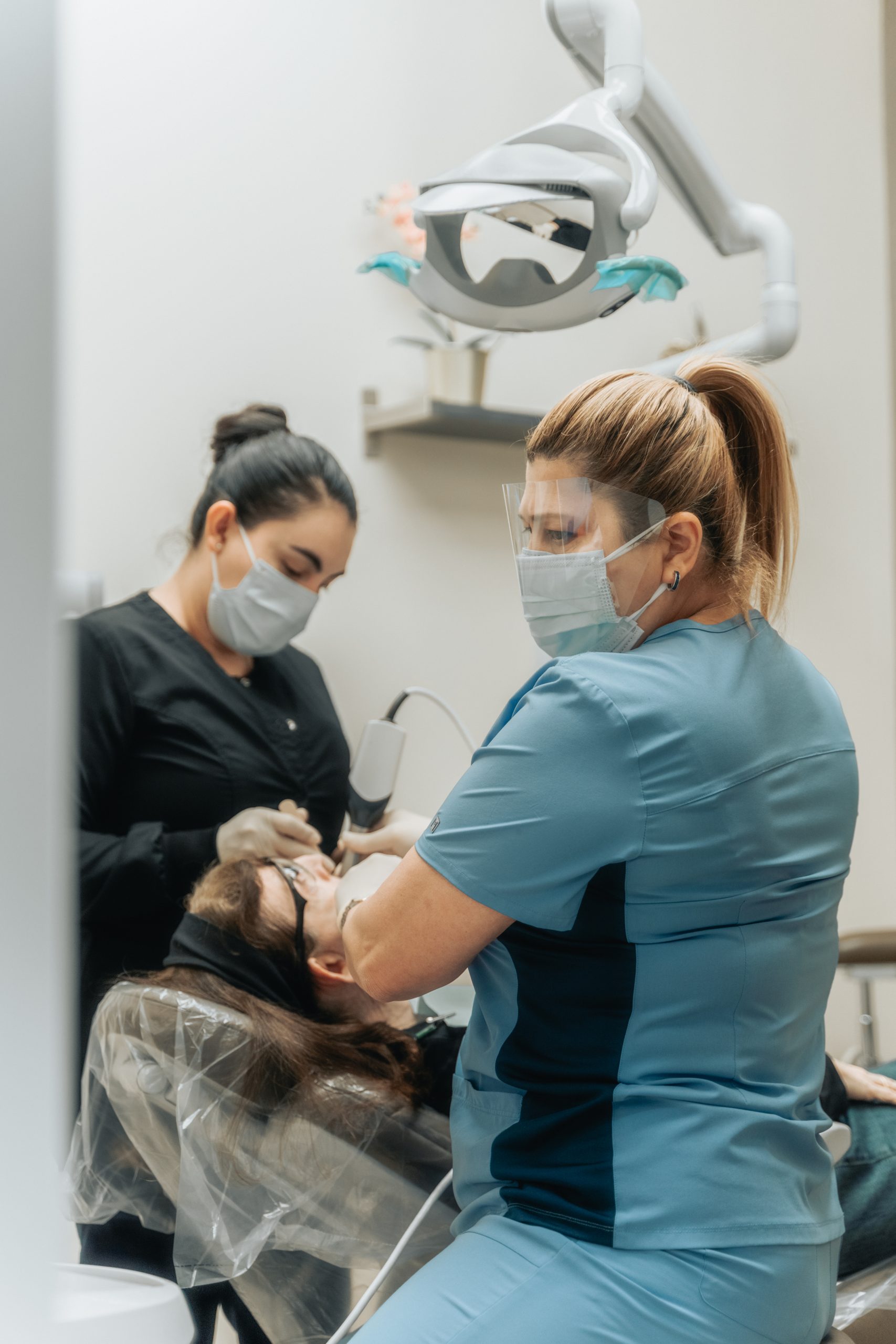Learn the Top Dentist Eugene Oregon Homeowners Trust for Exceptional Care
An Overview to Common Dental Conditions That Need a Dental professional's Care
Toothaches, for example, can be symptomatic of serious concerns such as tooth cavities, fractured teeth, or abscesses, each needing details interventions like dental fillings or origin canals. Impacted wisdom teeth and jaw disorders can present significant pain and issues.
Toothaches
Toothaches are a common oral problem that can range from moderate pain to severe pain, usually indicating an underlying concern that calls for expert focus. This discomfort can stem from a range of resources, consisting of dental cavities, split or fractured teeth, and oral abscesses. Each of these conditions positions substantial risks if left unattended, potentially causing more severe problems.
Oral cavities, also called decays, are triggered by the buildup of plaque that wears down tooth enamel, resulting in openings or pits in the influenced teeth. Cracked or fractured teeth, on the various other hand, might arise from injury, grinding, or biting right into tough objects. These architectural problems can reveal the delicate inner layers of the tooth, triggering sharp pain and enhancing the risk of infection. Abscesses hurt infections at the root of a tooth or in between the gum tissue and a tooth, normally resulting from serious degeneration or without treatment dental caries.
Reliable treatment of toothaches involves resolving the source. This might include dental fillings for dental caries, crowns for broken teeth, or root canals and anti-biotics for abscesses. Early treatment by a dental professional can protect against additional deterioration and reduce pain, making sure ideal dental health and wellness.
Gum Condition

The main cause of gum condition is microbial plaque, a sticky, anemic movie that regularly develops on teeth. Poor oral health, smoking, hereditary predisposition, and particular medical conditions, such as diabetic issues, can exacerbate the risk of establishing gum tissue condition. Routine oral check-ups are crucial for early discovery and management of this problem.
Therapy for gum illness varies from specialist dental cleansing and scaling to advanced treatments like origin planing and periodontal surgical procedure, depending on the extent. Preserving excellent oral health practices, consisting of brushing twice daily, flossing, and making use of an antibacterial mouth wash, can considerably reduce the danger of gum tissue disease and advertise healthier periodontals.
Cavities
Dental caries, also understood as cavities, are an usual dental condition identified by the destruction of tooth enamel because of acid-producing microorganisms in the mouth. These bacteria prosper on sugars and starches from food and beverages, creating acids that slowly deteriorate the enamel, resulting in cavity development.
Early-stage cavities may disappoint signs and symptoms, but as they progress, they can trigger tooth pain, level of sensitivity to cold or hot, noticeable openings or pits in the teeth, and discoloration. If left neglected, tooth cavities can pass through much deeper layers of the tooth, possibly causing severe pain, infection, and even tooth loss.
Avoiding tooth cavities entails a mix of excellent dental health techniques and nutritional habits. Regular brushing with fluoride toothpaste, flossing, and routine oral check-ups are important. Dentists may also recommend additional precautionary procedures, such as fluoride therapies and oral sealants, to safeguard teeth from decay.
Treatment for cavities depends on their severity. Small dental caries can be resolved with dental fillings, which restore the tooth's structure. If the decay has gotten to the tooth's pulp, more sophisticated cases might need crowns or even root canal therapy. Timely intervention by a dental professional is important to prevent issues and preserve overall oral wellness.
Impacted Wisdom Pearly Whites
Affected wisdom teeth are a widespread dental issue that takes place when the third molars, commonly described as wisdom teeth, fail to completely emerge or straighten appropriately within the mouth. This condition often arises from inadequate room in the jaw or an unusual growth angle of the teeth. Impacted knowledge teeth can bring about a range of complications, including pain, infection, and damages to adjacent teeth.
When knowledge teeth become affected, they are frequently partly appeared or remain completely under the gum line. This partial eruption can produce a path for germs to get in the periodontals, bring about infections that manifest as swelling, pain, and even fever (dentist eugene or). In addition, impacted wisdom teeth can exert pressure on surrounding teeth, possibly triggering crowding or changing
A comprehensive dental evaluation, normally entailing X-rays, is essential for identifying affected knowledge teeth. Treatment typically includes surgical extraction, carried out by a dental specialist. The treatment intends to ease discomfort and protect against additional issues, such as cysts or damages to bordering bone structures. Post-operative care is essential to guarantee appropriate recovery and lessen the threat of infection. Normal oral examinations are recommended to keep track of the condition and preserve oral health and wellness.
Jaw Conditions
Conclusion

Dental tooth cavities, also known as cavities, are created by the build-up of plaque that deteriorates tooth enamel, leading to holes or pits in the impacted teeth. Abscesses are unpleasant infections at the root of a tooth or between the gum tissue and a tooth, normally resulting from extreme decay or untreated cavities.
Impacted knowledge teeth are a prevalent dental concern that takes place when the third molars, frequently referred to as wisdom teeth, fall short to totally emerge or line up appropriately within the mouth. Impacted wisdom teeth can lead to a variety of complications, including pain, damages, and infection to nearby teeth.
In addition, impacted knowledge teeth can exert pressure on bordering teeth, potentially causing crowding or moving.